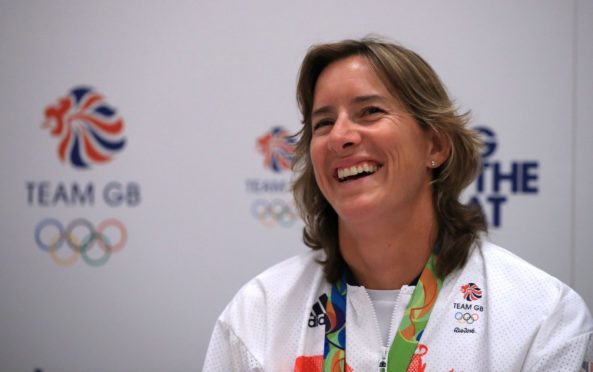It’s one of the memories which is indelibly etched in my mind: the sight of Cathy Freeman surging to Olympic glory in Sydney in 2000.
The mood inside the stadium at Homebush crackled with electricity, tens of thousands of spectators from every corner of the world responded with massive cheers as the Australian athlete lived up to her reputation, and the giddy scenes at the climax were straight from a revivalist rally.
In the media area, we looked around us and I caught the eye of a former colleague and we both burst into a smile. He said: “This makes it all worthwhile, doesn’t it?” And Freeman’s exploits were the catalyst for similar spontaneous eruptions of joy, not just in the arena, or even the host city or country, but throughout the globe on that special night.
That’s one of the beautiful attributes of the Olympics; they provide an escape from reality and a gateway to the sporting stratosphere in so many different milieus, on the track, in the pool, the boxing ring, the velodrome, shooting range and on the lakes and other settings for yachting, kayaking and rowing.
But they also offered visitors to Sydney an opportunity to become absorbed in the indigenous culture and meet the locals, even as we celebrated the myriad feats of Steve Redgrave, Ian Thorpe, Michael Johnson, Felix Savon, Denise Lewis and others who transcended their events and became world superstars.
In normal circumstances, I would be relishing the imminent Tokyo Games, which are scheduled to begin on July 23. Yet, even as participants everywhere continue to train relentlessly in pursuit of fulfilling their dreams, Covid-19 has returned to Japan with a vengeance and large parts of the country have been plunged into a new state of emergency in a bid to contain the pandemic.
The government said at the weekend that the new lockdown – which is expected to last for about two weeks – would be “short and powerful”. Under the measures, bars will be required to close and major sporting events will be held without fans, even as cases continue to rise.
The Japanese authorities are insisting that the Olympics will still go ahead, even though the prime minister, Yoshihide Suga, has announced the measures will remain in place until at least May 11.
But, in addition to Tokyo, the areas of Osaka, Kyoto and Hyogo are also affected and it is becoming increasingly unlikely that the Games will be anything but a pale imitation of previous festivals.
Obviously, officials in Japan are clinging to the hope they can make the best of a bad job, despite the fact they will be denied any international visitors or the massive economic benefits which are part of the Olympic dividend.
We saw it in Sydney and that was matched by the effervescence of the London extravaganza in 2012 when Britain came together with a glorious exhibition of pyrotechnics which lifted spirits and inspired a new generation to take an interest in sport. I was on holiday in London at the time and travelled to Eton Dorney, where Katherine Grainger finally achieved the Olympic gold which had eluded her at three previous Games.
A few weeks later, when an open-top bus parade was held in Glasgow and Scotland’s medalists were feted by the public, I mingled with the fans and talked to many of them about how they had been inspired by the golden performances of Grainger, Andy Murray, Chris Hoy, Heather Stanning, Tim Baillie and Scott Brash. It might have been a transient tonic, but anybody who was in George Square that night could appreciate the magic in the air.
There will be little of this in Tokyo, even if the Games proceed. It’s too late now to suggest an alternative venue, but the prospect of more than 10,000 athletes descending on a country from more than 30 different sports, involved in 339 separate events, borders on the absurd when you consider that we are less than three months away from the torch being ignited.
In simple terms, the Olympics aren’t like a domestic football or rugby championship or even the Indian Premier League (although the current Covid crisis in that country is another cause for genuine concern). On the contrary, these Games are supposed to bring people together from every age, gender, background and continent. They’re a quadrennial chance to remember we are all part of a global family, one which applauds excellence and effort.
Once you remove the element of games without frontiers, and concede that the best you can hope for is a safe and secure event, you might as well accept this is going to be the Olympics-lite. Which isn’t enough.
Of course, it will be a shame for those participants who are viewing the proceedings as their last hurrah, but wouldn’t it be better to rearrange the Games in Japan for 2024 and shift Paris to 2028 and Los Angeles to 2032?
Tokyo president Seiko Hashimoto is adamant that she and the other organisers are not considering another cancellation. But, though some sport can continue in a bubble, I don’t believe the Olympics will manage it.
Or not without being severely diminished.
